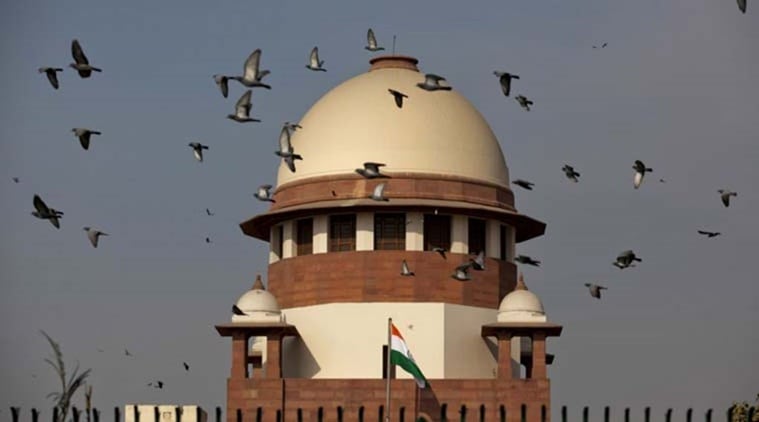Stay updated with the latest - Click here to follow us on Instagram
Mumbai 1993 blasts: SC rejects convict’s plea for shorter jail term
Yusuf Mohsin Nullawala had destroyed AK-56 at behest of Sanjay Dutt.
 Appearing for Nullawala, senior advocate Harish Salve told the bench that this crucial aspect about the gun not being a prohibited firearm was overlooked by his lawyer and this new fact changed the dimension of the case entirely.
Appearing for Nullawala, senior advocate Harish Salve told the bench that this crucial aspect about the gun not being a prohibited firearm was overlooked by his lawyer and this new fact changed the dimension of the case entirely.
The Supreme Court Monday dismissed a petition by 1993 Mumbai blasts case convict Yusuf Mohsin Nullawala, seeking a reduction in his jail term for destroying an AK-56 rifle at the behest of his friend and Bollywood actor Sanjay Dutt.
A bench of Justices S A Bobde and Ashok Bhushan declined to entertain his plea that was based on a new theory that the gun he had destroyed at Dutt’s instance was not a “prohibited” firearm and hence his five-year jail term could be reduced.
Possessing a firearm defined as “prohibited” under the Arms Act entails a minimum five years in jail whereas the maximum punishment is three years for a non-prohibited weapon.
Both Dutt and Nullawala were sentenced to five years in jail under the same provisions of the Arms Act for possessing an AK-56 rifle.
The actor had acquired the rifle, which allegedly formed part of the consignment of the ammunition meant for the blasts that had claimed 257 lives.
Nullawala took it out of Dutt’s house and destroyed it on the latter’s instructions.
Appearing for Nullawala, senior advocate Harish Salve told the bench that this crucial aspect about the gun not being a prohibited firearm was overlooked by his lawyer and this new fact changed the dimension of the case entirely.
Seeking reduction of jail term, Salve claimed Nullawala was convicted for possessing an automatic gun, described as a “prohibited” weapon under the Arms Act, but the forensic reports have now showed that the gun was a semi-automatic one and hence not a “prohibited” weapon.
Salve said the conviction was wrongly recorded under a more stringent provision of the Arms Act.
Watch Video: What’s making news
He added that Nullawala could have been sent to jail for maximum three years since the gun was a semi-automatic one.
But the bench pointed out that there was no precedent where the court had issued a writ against its own order of sentence.
It added that Nullawala should file a curative petition.
“Then it is not that he was wrongly convicted. He does not become an innocent man even if we accept your argument,” said the bench as it rejected his petition.







